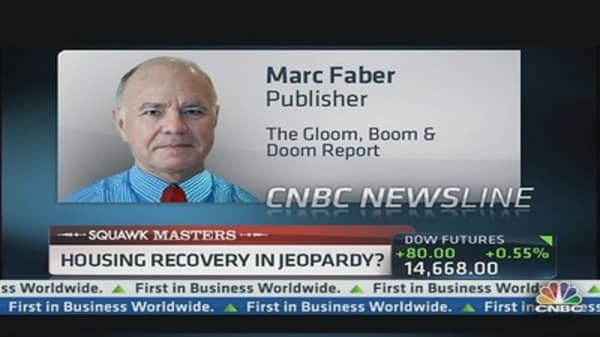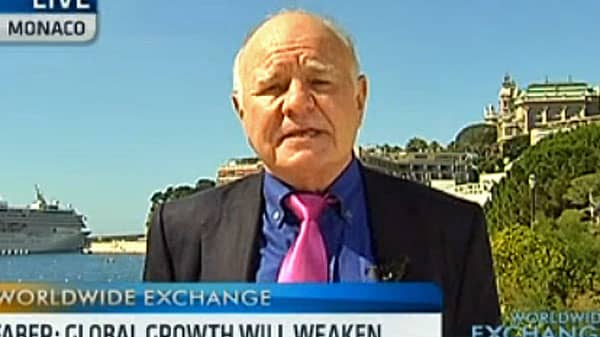The dean of doom, Marc Faber, told CNBC on Tuesday that a variety of asset classes—including equities—may be worth buying for short-term gains.
In the midst of market volatility on concerns over Federal Reserve tapering, he said, "Treasury bonds, gold and equity markets are oversold in the near-term and they can rebound for the next 10 days or even the next month."
But beyond that, he sounded more like the author of "The Gloom, Boom & Doom Report."
"The best course of action is to actually not buy anything, but rather to reduce positions on a rebound," Faber said.
The S&P 500 could "rebound to around 1,630-1,640" in the short-term, Faber added, but warned the index could drop 20 to 30 percent from its all-time intraday high on May 22 of 1,687.
Also known as "Dr. Doom," Faber said that new highs in emerging markets were unlikely, and he did not see any buying opportunities in emerging markets, yet.
(Read More: What's Behind the Emerging Markets and China Selloff)




